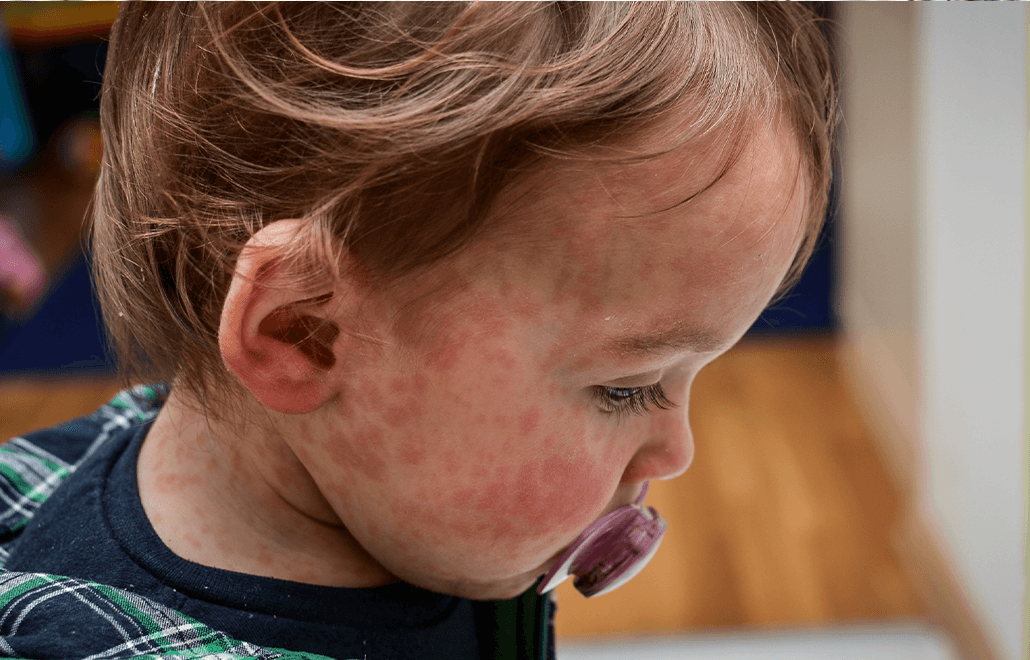
07 Jun Does My Child Have Allergies?
3 min. readLike adults or older kids, infants can also experience allergies to things, food, and unseen they inhale. When the babies show symptoms of any kind, it is often difficult to determine as they are unable to describe what they’re experiencing. Sometimes your child can catch an allergic reaction from family’s pet, cow’s milk, and dust mites.
There are many allergic reactions babies can develop. You can generally divide them into any of these categories:
- Seasonal
- Environmental
- Medicine and food
Food Allergies
More than 6 million babies experience food allergies. Having a food allergy means your toddler is allergic to food (any type) and may develop a reaction. These foods may include:
- Nuts
- Cow’s milk
- Soy
- Shellfish
The common symptoms of food allergic reactions in babies are:
- Diarrhea
- Fainting
- Rash
- Rash around the mouth
- Vomiting or nausea
- Swelling of, legs, arms, or face
- Runny nose
- Throat tightness
- Trouble breathing
Food allergies may have serious symptoms and can lead to anything from extreme breathing problems to low blood pressure. If you notice clammy skin or signs like dizziness in the baby after feeding him or her, see your pediatrician immediately.
Seasonal Allergies
Seasonal allergies are typically plant-based allergen reactions and can cause the following symptoms in the babies:
- Itchy or watery eyes
- Sneezing
- Coughing
- Runny nose
Environmental Allergies
Though environmental allergies are uncommon in infants, things like pollen, dust, pets, and insect stings may trigger an allergic reaction that can affect the chest and head causing:
- Runny nose
- Coughing
- Chest tightness
- Itchy and red eyes
- Sneezing
How to identify if it is a Cold or Allergy
Coughing and runny nose are the common symptoms of allergy and cold in babies. That is why it is often difficult to identify the difference when your baby exhibits these signs. One way to do it is to note the frequency and timing of the symptoms.
While a cold lasts a week, allergies tend to take a little longer to heal. Also, allergies don’t cause other symptoms such as fever, pain, or body aches.
When to See a Doctor
If your baby shows mild symptoms that come and go, note what could be the reasons. Did you take the baby to the park? Did your baby play with the pet? Did your baby eat new food?
Typically, mild symptoms don’t require a visit to the doctor. However, reach out to your pediatrician if the signs worsen or don’t subside within the expected time. If it is a reaction to the new medicine, immediately visit the doctor.
While most allergic reactions are not harmful or dangerous in babies or infants, you must take note of the pattern and frequency of the symptoms. Explain all the signs to your pediatrician to seek help. Give us a call at 817-617-8600 at Continuum Pediatrics to talk to our expert pediatricians and discuss what may cause your baby an allergic reaction.

